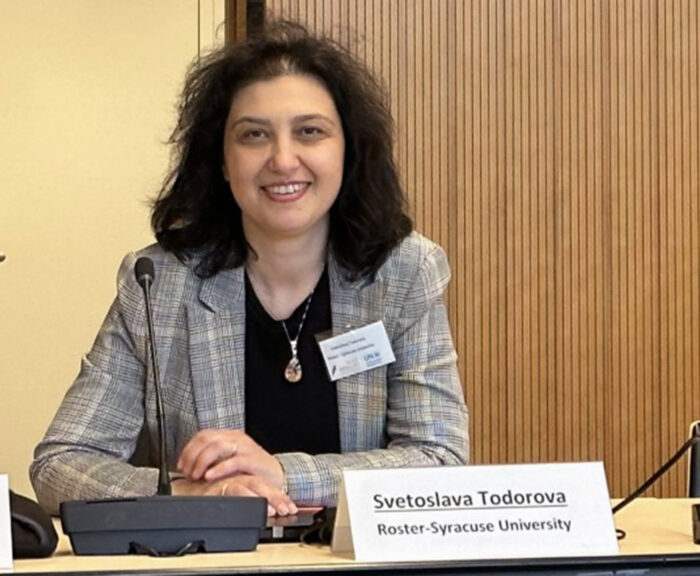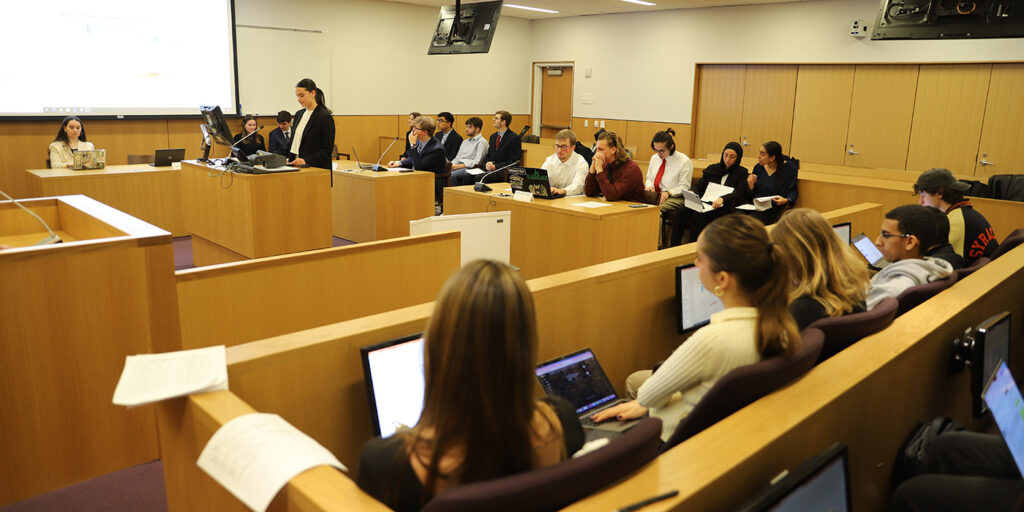
In December 2023, students in Professor Svetoslava Todorova’s course CEE 341 “Introduction to Environmental Engineering” served as expert witnesses and lawyers in a mock trial. In this simulated trial, they learned the importance of scientific accuracy and engineering judgment in litigation practice.
Using real data from a contamination case in Europe, students were split into three groups representing different companies accused by the city of contaminating its groundwater pumping wells. For three weeks, they worked with their groups to analyze chemical and hydrological data, considered toxicological exposure, and government regulations to provide their engineering interpretation of the issue to their fictional company’s CEO.
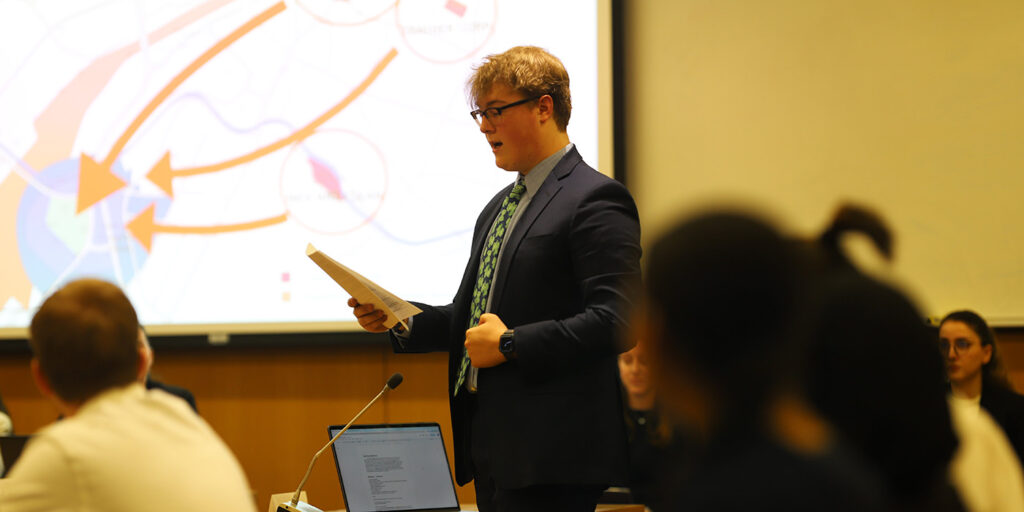
“Our group worked hard over the weeks leading up to the trial and were trying to look at all possible directions that the trial could go. We chose two of our witnesses to be expert witnesses in the fields of groundwater flow and toxicology, with our last witness being an employee from another company,” says civil engineering student Kana Wong ‘25.
After weeks of preparation, students from CEE 341 and students from ECS 101 “Introduction to Engineering,” taught by civil and environmental engineering professor, Peter Plumley, came together in the School of Law’s courtroom. CEE 341 students served as legal professionals and witnesses and the ECS 101 students served as the jury. A legal professional from the local community also served as the judge while Plumley served as the court bailiff.
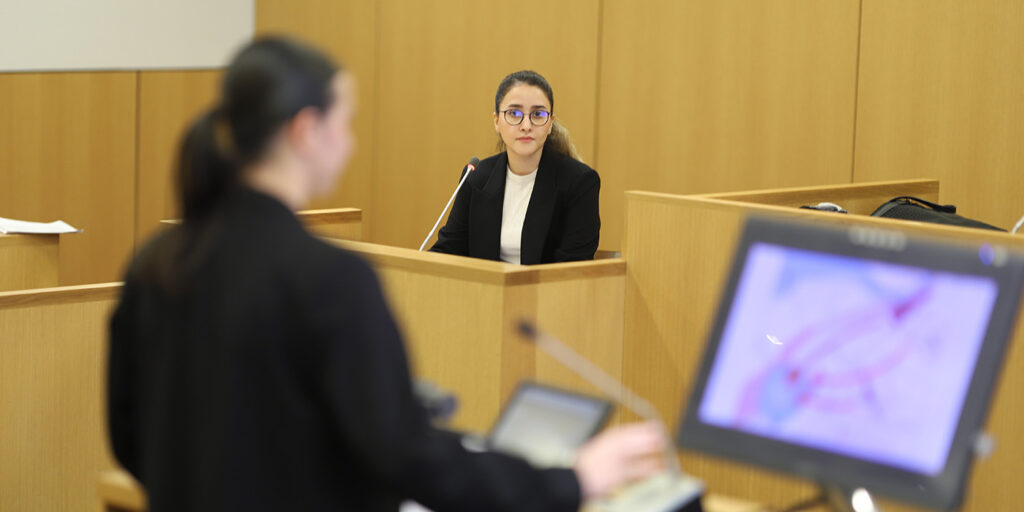
“The concept of upper-division students role-playing as legal professionals and witnesses and entry-level students as jurors adds a great dimension to the student learning experience. Professor Todorova’s [project] effectively recreates the atmosphere and components of a real-world civil trial,” says Plumley.
“From the lawyers who smiled coyly after nailing a speech or debate with their witnesses, to being yelled at by the other passionate jurors when voting, it made me truly feel like I was in a political court case. I was a little worried I wouldn’t be able to interpret any of the law terms, but after the first trial I sat through, being the foreperson in the second trial was a breeze,” says environmental engineering student Natahlia Hammond ‘27.
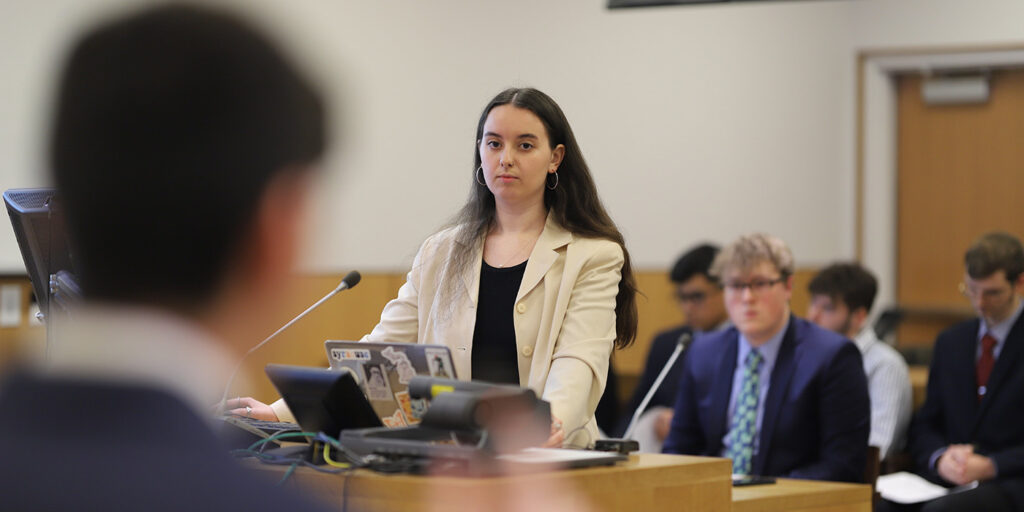
Plumley and the judge kept track of time during all legal proceedings, which included opening statements, questioning witnesses, cross-examining opposing witnesses, and closing statements.
“I served as the expert witness employed by my company to show our findings. I was questioned by my company’s lawyers and cross-examined by [opposing counsel]. The roles we played were done in the hopes that we could [shift the focus onto] the other companies rather than the one we were chosen to represent,” says environmental engineering student Emma Crandall ‘25.
“As one of the lawyers from my group, it was important to have a good grasp of all of my company’s data and what may play to our strengths and weaknesses in our defense, but to also know how the procedures worked overall when cross-examining witnesses,” says civil engineering student Noah Ialongo ‘25.
“As the faculty member providing the jurors, I especially appreciate that the outcome of each trial depends so much on the defense and delivery of the expert witnesses and the cross-examination by the associated company attorneys,” says Plumley. “Svetla and I are also particularly thankful for the School of Law for allowing our engineering students to experience the inner workings of a courtroom.”
“It was absolutely captivating to see how junior engineering students applied the knowledge they gained in class, managed to build a defense plan, and utilized expert witnesses, detailed maps, and cross-examination to defend and deflect the prosecution,” says Todorova. “Developing a solid scientific argument in support of, or against the presented evidence is critical.”

